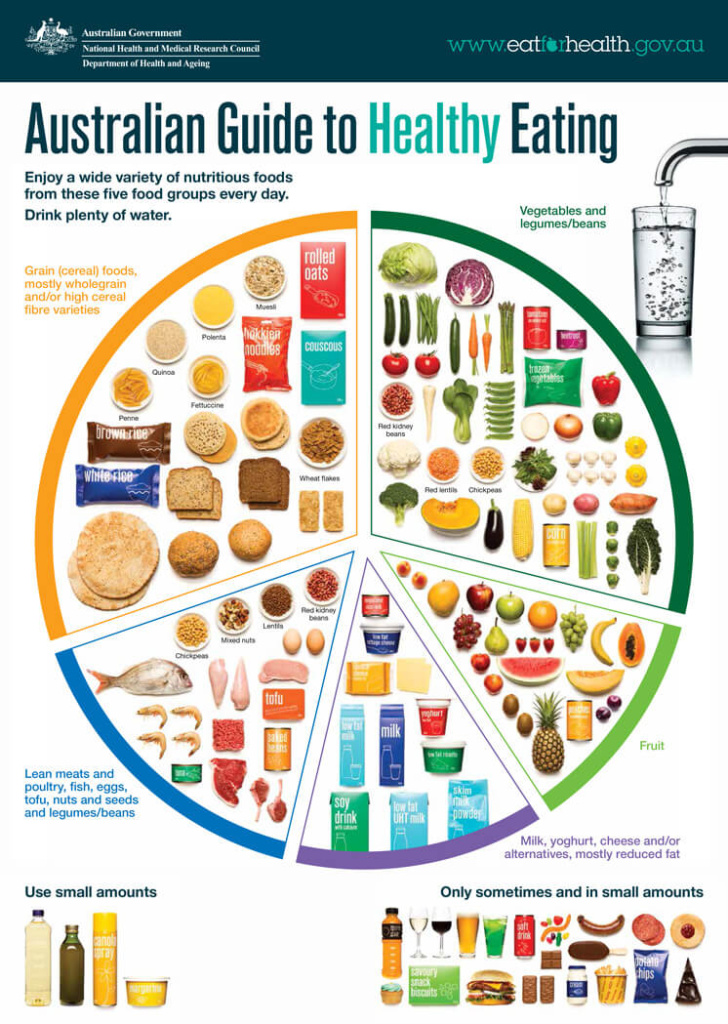It’s no mystery that food plays a vital role in a child’s growth, and healthy eating makes a healthy child. While eating a small number of unhealthy foods like sugary sweets and processed snacks won’t cause much harm, a balanced diet filled with fruits and vegetables is best. The foundations of a healthy diet contain nutrient-rich foods that improve your child’s physical health and promote their mental capabilities, keeping them alert and energised throughout the day.
At Little Scholars, we understand the importance of a healthy diet in enabling a child to thrive and meet their fullest potential. We have a healthy four-week menu rotation made by our fabulous chefs who prepare fresh, nutritionally balanced meals for your children.
So if you want to guarantee the health and success of your child, be sure to book a tour today.
Australian Guide to Healthy Eating

A key to healthy eating for children is ensuring they enjoy a wide variety of nutritious foods. The Australian Guide to Healthy Eating recognises five core food groups for complete nutrition. These groups are divided into proportions to help you understand how to help your child eat healthily throughout the day. Each food group in the correct amount gives your child an excellent chance to get the right amount of nutrients and vitamins their body needs to function well.
Based on the five food groups in the Australian Guide to Healthy Eating, let’s look at what food your child needs to stay healthy.
Healthy Food For Children
- Whole Grains: these are grains that contain high fibre and include bread, rice, cereals, pasta, and more. Refined grain products, which include biscuits and cakes, contain high amounts of fat, sugar, and flour and should be avoided. No matter your child’s age, whole grains are a must in their daily meals.
- Vegetables and Legumes: vegetables are nutrition powerhouses and should make up a large portion of your child’s food intake. Getting your child to eat vegetables at every meal is far easier said than done but is a worthwhile endeavour! This food group provides the body with vitamins, minerals, and phytonutrients to stay healthy.
- Fruits: fruit is probably one of the easiest healthy food groups to feed your child. They provide the body with many vitamins and minerals, as well as dietary fibre.
- Meat and other protein-rich foods: protein is an essential macronutrient and should make up a significant percentage of the calories in your child’s diet. Proteins act as a building block to maintain and repair body tissues. It’s best to avoid red meat and focus on lean proteins, such as chicken and fish, or alternative sources such as tofu and legumes.
- Dairy Products: dairy products are excellent sources of calcium, which aids in strengthening the bones and keeping your child healthy for daily activities.
Benefits of Healthy Eating in Early Childhood
There are many benefits of healthy eating for children in early childhood, and they include:
#1. Healthy Body Weight
Every child has a different natural body composition, but healthy eating helps keep your child’s weight within the appropriate range. However, you shouldn’t focus too much on your child’s weight as it might communicate unhealthy eating habits.
#2. Normal Growth/Development
As your child grows, they will need the right amount of food and adequate nutrition to ensure normal growth and development. For example, sufficient calcium and vitamin D in their meals will give them strong and healthy bones. Children aged 4 to 8 need up to 700 milligrams of calcium for healthy bone development, according to the Queensland Government’s calcium for children’s guidelines.
One of the best ways to incorporate these nutrients into their diet is through foods such as low-fat dairy products. In addition, fortified cereals, salmon, and leafy greens are also excellent sources of calcium.
#3. Improved Immune System
Children need to have robust immune systems to be able to fight off ailments like colds and the flu. The right proportion of fruits and vegetables helps boost their immune system.
#4. Better Brain Functioning
Children need a healthy diet to optimise their brain activity as they grow, making them perform and focus well at school. Some essential foods that can help improve brain functioning include fish, eggs, nuts, and seeds, all great sources of vitamin E and healthy fats.
3 Ways to Encourage Children’s Healthy Eating
Here are 3 great ways to improve your children’s healthy eating habits:
#1. Lead by Example
#2. Involve Them in Cooking
Involving the little ones in the cooking process can be a fun way to help them learn about food. For example, you can get them to mix up a salad or help peel some vegetables, ensuring that everything is done safely and responsibly. Our staff regularly plan cooking activities such as making fruit sticks, fruit yoghurt iceblocks and other yummy healthy treats.
Another idea is to allow them to occasionally choose what the family will eat for dinner or lunch – although set some ground rules so you don’t end up having ice cream for dinner!




